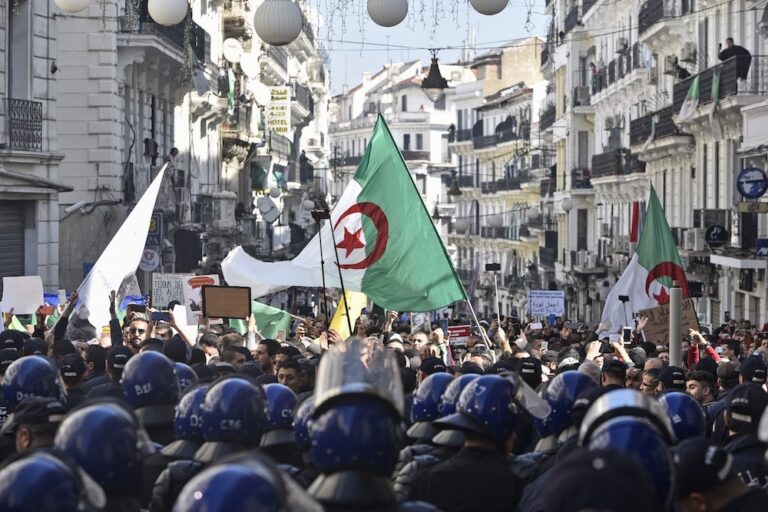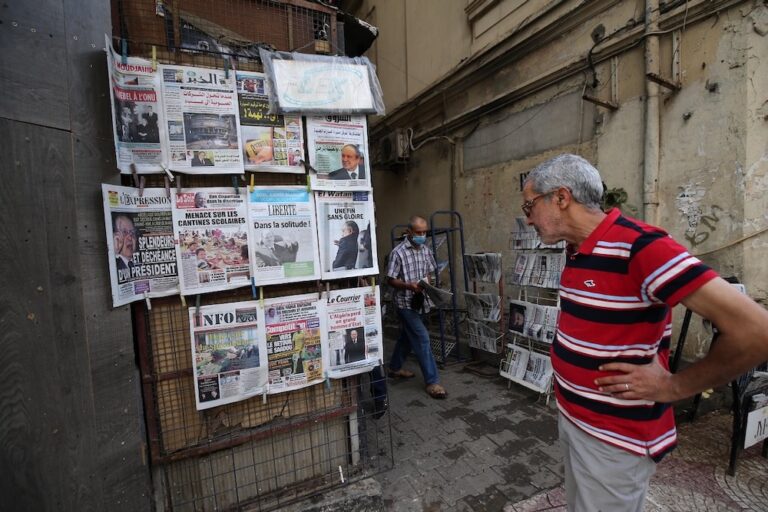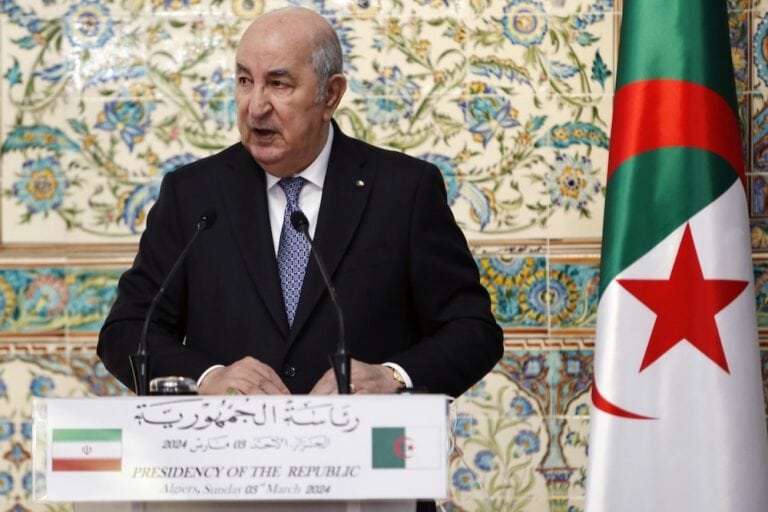(IFJ/IFEX) – The following is a 22 April 2005 IFJ media release: IFJ Condemns Systematic Legal and Political Repression Against Independent Press in Algeria The International Federation of Journalists today condemned the decision by the Court of Algiers, two days ago, to turn down the appeal for the conditional release of Mohamed Benchicou, Managing Editor […]
(IFJ/IFEX) – The following is a 22 April 2005 IFJ media release:
IFJ Condemns Systematic Legal and Political Repression Against Independent Press in Algeria
The International Federation of Journalists today condemned the decision by the Court of Algiers, two days ago, to turn down the appeal for the conditional release of Mohamed Benchicou, Managing Editor of Le Matin daily newspaper. The IFJ also vigorously protested against the prison sentences handed down to four other journalists of Le Matin last Tuesday.
“The Algerian government has launched a campaign that seeks to tear the independent press into pieces,” said Aidan White. “The political corruption of the judiciary following these attacks on civil rights, and legally backed by now weekly trials, highlights the breakdown of the rule of law and fundamental rights in Algeria.”
Benchicou has been detained since 14 June last year and now the Algerian judiciary has decided to keep him in jail despite a request by the prison doctor advising him to be hospitalized.
According to his lawyers, the managing editor of Le Matin is suffering from acute cervical arthritis and carries the risk of having his face paralyzed. The counsel’s speech delivered by the civil party, although emphasizing that Benchicou will respect any decision from the court no matter how restrictive it might be, has not been able to get any response from the chair of the court.
This situation, which reflects the determined will of the Algerian authorities to strengthen their position over the independent press, took place the day before a series of prison sentences were handed down to several journalists of Le Matin daily, suspended by the Algerian authorities since July 2004.
Taking into account two cases concerning articles written by journalists describing allegations of racketeering made against several politicians, and charges of financial mismanagement made against the Sonatrach oil company during the period from 2001 to 2003, the tribunal finally delivered a series of harsh verdicts as well as an extended sentence against Mohamed Benchicou.
Youssef Rezzoug and Yasmine Ferroukhi were sentenced to three months in prison. Abla Chérif, along with Hassane Zerrouky, a journalist for l’Humanité, were sentenced to two months in prison. Mohamed Benchicou was sentenced to five months in prison. The defense team for the journalists contested, point by point, pleading against a series of accusations. At the same time, the tribunal imposed a number of prison sentences even though the plaintiffs only requested one symbolic dinar of compensation.
Journalists’ representatives fear that the four convicted parties could be imprisoned before the conclusion of the appeal process put forward by the defense.
These signs of retrenchment within a progressively totalitarian regime point to a deliberate will to stifle independent voices,” said Nadir Benseba, Coordinator of the IFJ Regional Centre in Algiers. “This policy of repression was instigated by the President at the beginning of the year, when he encouraged the judges not to be intimidated by the writing of the ‘mercenaries of the pen’.”
One of the most disturbing aspects of these weekly legal affairs, nicknamed the “Tuesday trials”, is that journalists are indicted on defamation grounds without any parallel obligation for plaintiffs to prove their allegations.
“This succession of political trials against journalists takes place while democratic states simply hang on to a policy of steady and silent diplomacy,” said White. “It is urgent that the voices of democracy unite to confront those systematic violations of fundamental civil rights in Algeria.”
The IFJ is calling on the international community to react immediately and to face up to the seriousness of the attacks against the independent press in Algeria.
The IFJ represents over 500,000 journalists in more than 110 countries.


